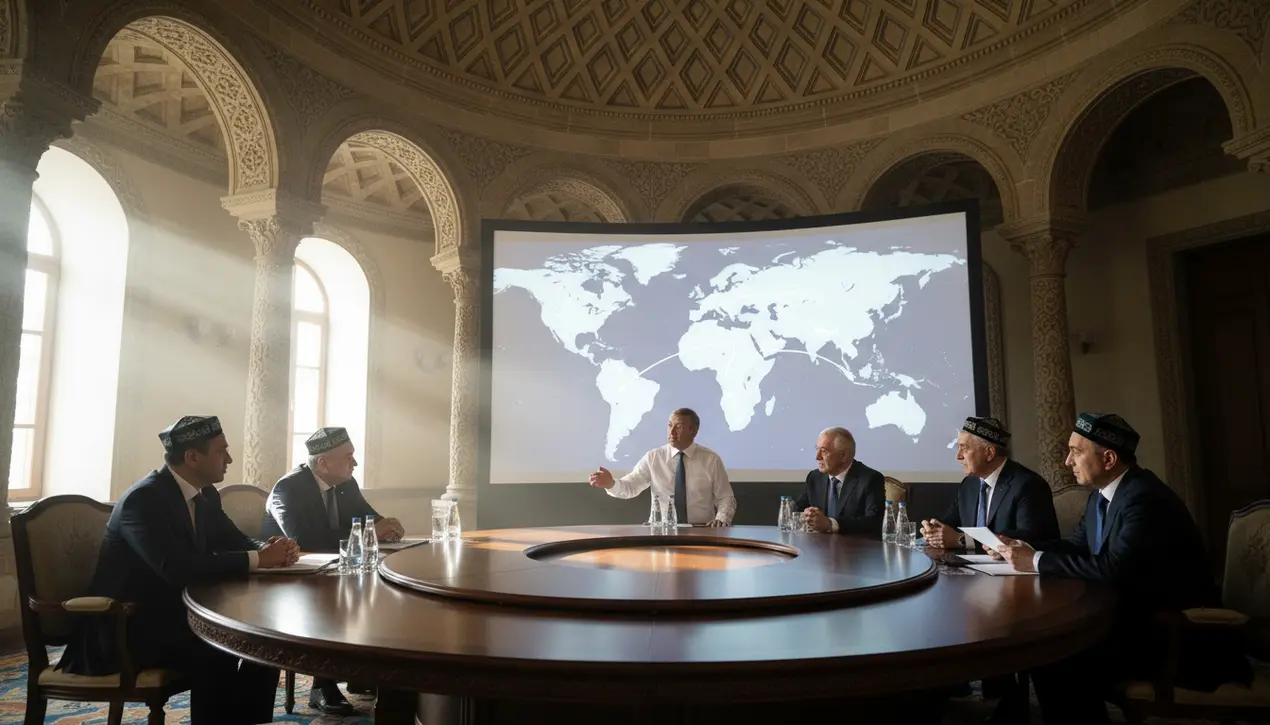
PoliticsdiplomacyMultilateral Summits
Central Asian Leaders Strengthen Integration with Azerbaijan's Inclusion.
RO
Robert Hayes
2 hours ago7 min read1 comments
In a significant geopolitical maneuver echoing the strategic realignments of a bygone era, the leaders of Central Asia converged upon Uzbekistan's capital for the Seventh Consultative Meeting, a gathering whose primary outcome—the bolstered integration of Azerbaijan into their regional framework—signals a profound shift in the post-Soviet landscape. This is not merely another diplomatic handshake; it is a calculated, collective response to the vacuum left by a distracted Russia and the persistent, expansive overtures from China, crystallizing a new axis of influence stretching from the Caspian Sea deep into the heart of the continent.The inclusion of Baku, a nation culturally Turkic yet geographically and economically pivotal, transforms the traditionally closed-circuit dialogue of the ‘-stans’ into a more formidable, trans-Caspian bloc. One can draw a historical parallel to the Great Game of the 19th century, where empires jockeyed for control over these very territories; today, however, the players are largely the same nations, now sovereign, attempting to write their own rules of engagement, reducing their historical dependency on Moscow while navigating the delicate dance between Beijing’s infrastructural investments and Western appeals for energy diversification.The emphasis on stronger political dialogue suggests a move towards a unified voice on issues like the stabilization of Afghanistan, a persistent threat on their southern flank, while the push for economic integration aims to finally untangle the notorious Soviet-era infrastructure knots that have long hampered intra-regional trade, with Azerbaijan’s pipelines and ports offering a coveted gateway to European markets. Collective security, the third pillar, is the most telling, a tacit acknowledgment that neither the Collective Security Treaty Organization nor bilateral agreements with larger powers have provided sufficient insulation from the spillover of regional conflicts or internal instability.The consequences are manifold: for Europe, this burgeoning bloc presents an alternative, albeit complex, corridor for energy and goods, potentially diluting Russia’s leverage; for Moscow, it represents a quiet but firm erosion of its traditional ‘near abroad’ sphere of influence; and for the nations themselves, the gamble is whether this newfound cohesion can withstand internal rivalries, such as those over water resources, and external pressures without fracturing. As Churchill might have observed, this is not the end, nor even the beginning of the end, but it is, perhaps, the end of the beginning for a Central Asia learning to assert its own agency on the world stage, with Azerbaijan as its strategic lynchpin.
#Central Asia
#regional integration
#Azerbaijan
#political dialogue
#economic cooperation
#collective security
#featured
Stay Informed. Act Smarter.
Get weekly highlights, major headlines, and expert insights — then put your knowledge to work in our live prediction markets.
Related News
Comments
Loading comments...
© 2025 Outpoll Service LTD. All rights reserved.